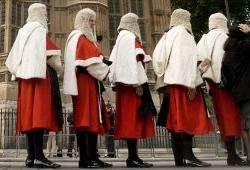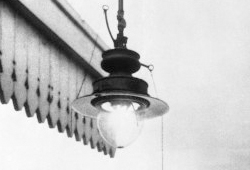Hundreds of pieces of legislation, some of them dating back centuries, have only a few months left to live.
According to Sir James Munby, chairman of the Law Commission for England and Wales: "Getting rid of statutory dead wood helps to simplify and modernise our law, making it more intelligible. It saves time and costs for lawyers and others who need to know what the law actually is, and makes it easier for citizens to access justice."
This might sound like a rather dry and dull business. But some of the laws facing the chop are frankly bizarre, and makes you wonder why they have been left on the statute book for so long.
Among the legislation up for the axe are:
- an 1800 Act to hold a lottery to win the £30,000 Pigot Diamond, then the most expensive jewel in Europe. The law allowed for the issuing of up to 11,428 tickets, at two guineas each, and for a lottery to be held in January 1801. The prize was won by a syndicate.
- a 1696 turnpike Act to repair the roads between Reigate and Crawley.

- 16 Acts passed between 1798 and 1828 to impose duty on every pint of ale, beer or porter brewed or sold in parts of Scotland.
- the Forgery of Foreign Bills Act 1803, which prohibited forging and counterfeiting any "bill of exchange or promissory note or money order belonging to any foreign state (with intent to deceive 'his Majesty, his heirs and successors'), tendering such forgeries, engraving plates for bills of exchange and the like without authority, possessing such plates, and printing unlawful instruments."
- the Sale of Offices Act 1809, which was passed as a consequence of a scandal involving the Duke of York, the head of the army, and his mistress. The woman in question, a Mrs Clarke, was proven to have taken money from those who wished to buy promotion or favours within the army. It was alleged that the Duke of York knew of her sales of office, and even that he took a share of the proceeds.
According to a history of the era: "For two months witnesses were examined from the underworld of London society. In the end it was carried, by 278 to 196, that the Duke of York was not guilty of personal corruption or of connivance at corruption. But as he had clearly been guilty of allowing his mistress to know too much of official business he was obliged, in spite of his services to the army, to resign his official appointments."
He was reappointed to his position in 1811.
- 38 acts relating to the creation of railway companies in India during the 19th century, all of which no longer exist.
- the London Gaslight Acts 1852, 1857, 1866 and 1880, regulating the supply and distribution of gas throughout the capital
- the Erecting Bristol and Gloucester Courts of Conscience Act of 1688, allowing for
"a court of request or conscience should be established within each city, and
that local commissioners should sit on a weekly basis to determine debt actions
of up to 40 shillings in value."
- the Southwark Streets Act (1749), recording the need for street lamps and watchmen to improve security to the local residents at night.
- the Orphans, London Act (1694), passed to raise a fund to replenish an ancient fund that existed to support orphan children of Freemen of the City of London.
- the Million Lottery Act of 1693, authorising the establishment of the so-called Million Lottery scheme, involving the sale of up to 100,000 tickets to "natives or foreigners". This state-sponsored scheme was designed to raise the sum of £1 million "towards carrying on the war against France".
- The Llanfyllin and Llangynog Railway Act 1873 was passed to authorise the
Llanfyllin and Llangynog Railway Company to construct a railway in Powys
between, unsurprisingly, the parishes of Llanfyllin and Llangynog. It never happened.
The earliest repeal of all dates from around 1322, and is called Statutes of the Exchequer. Its full title is: "What Distress shall be taken for the King's Debts, and how it shall be used". These statutes regulated the taking and impounding of animals, how they were to be fed, cared for and sold, and what livestock was to be exempt.
The most recent law up for the chop is part of the Taxation (International and Other Provisions) Act - passed just two years ago in 2010.
You can, if you wish, read the full report.
By Ian Jones for MSN News


No comments:
Post a Comment